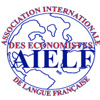Human capital and food security of households in Togo
Yevessé DANDONOUGBO
Université de Lomé-Togo
École Supérieure d’Agronomie (ESA)
Département d’Agroéconomie et de Sociologie Rurale
ydandonougbo@univ-lome.tg
https://orcid.org/0000-0003-3022-7639
Ablamba A. JOHNSON
Université de Lomé-Togo
Faculté des Science Économiques et de Gestion
Département des Sciences Économiques
ablambaj@yahoo.fr
https://orcid.org/0009-0008-2163-7963
Kodjo Théodore GNEDEKA
Université de Lomé-Togo
Faculté des Science Économiques et de Gestion
Département des Sciences Économiques
tgnedeka@gmail.com
https://orcid.org/0000-0003-0063-4524
Abstract
Purpose : The purpose of this paper is to analyse the effect of human capital on household food security in Togo.
Design/methodology/approach : The multinomial logit model was employed using data from the 2015 QUIBB survey conducted among two thousand four hundred (2,400) households at Togo.
Findings : The results show that 8.17% of households in Togo experience total food insecurity. Furthermore, 4.74% and 35.09% of them are respectively considered to be in transient food insecurity based on food consumption scores and food expenses. Additionally, the estimation of the multinomial logit model reveals that when the household head is educated or when the household has easy access to a healthcare center, it reduces the risk of food insecurity in the household. Therefore, any policy aimed at investing in human capital while prioritizing vulnerable groups in Togo would lead to an improvement in their food security status.
Originality/value : This research highlights the contribution of human capital to food security, using a composite index to capture household food security in Togo.
Keywords : human capital, households, multinomial logit model, food security.
JEL classification: C35, H31, P36, Q11.
DOI : https://doi.org/10.18559/RIELF.2023.2.7

